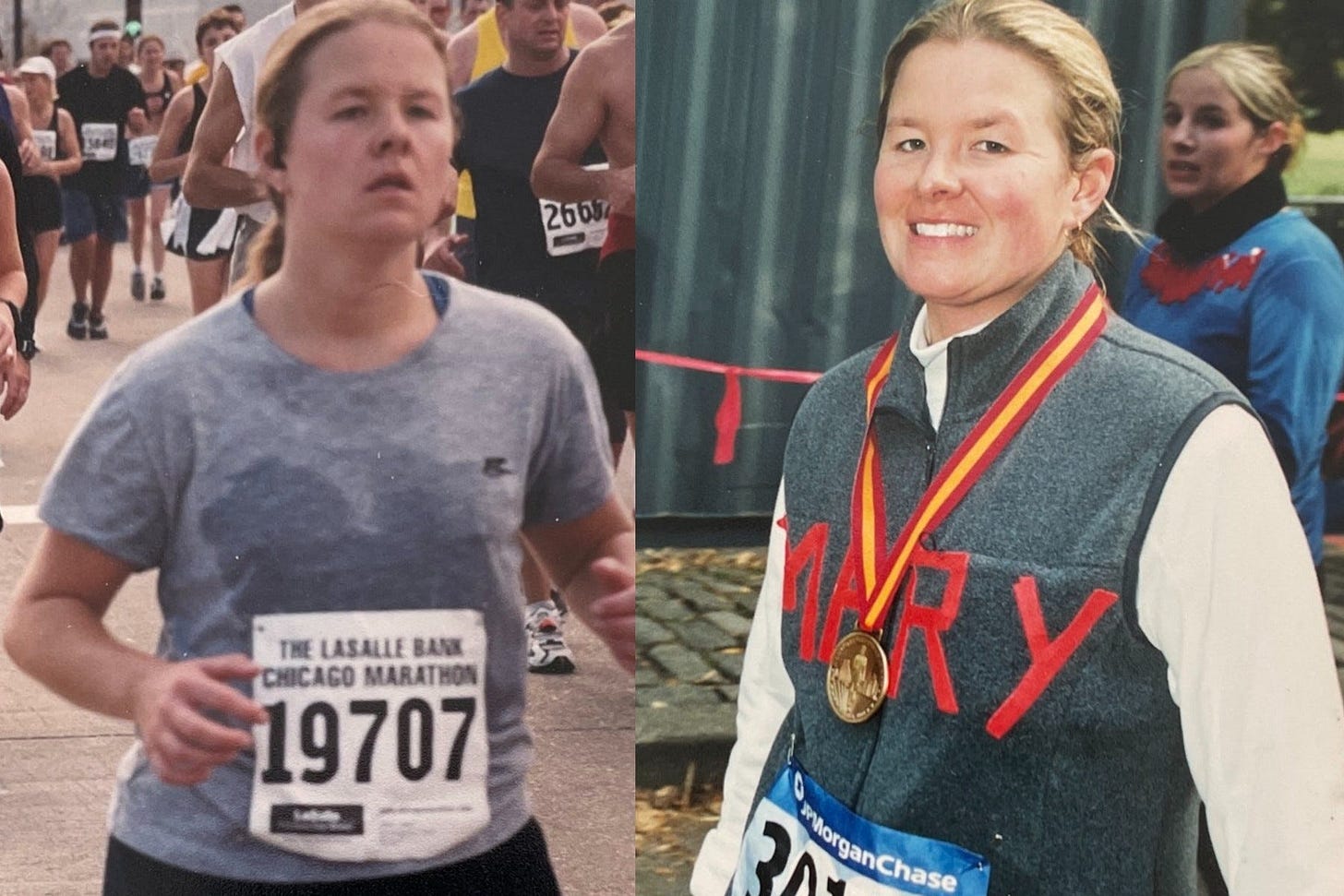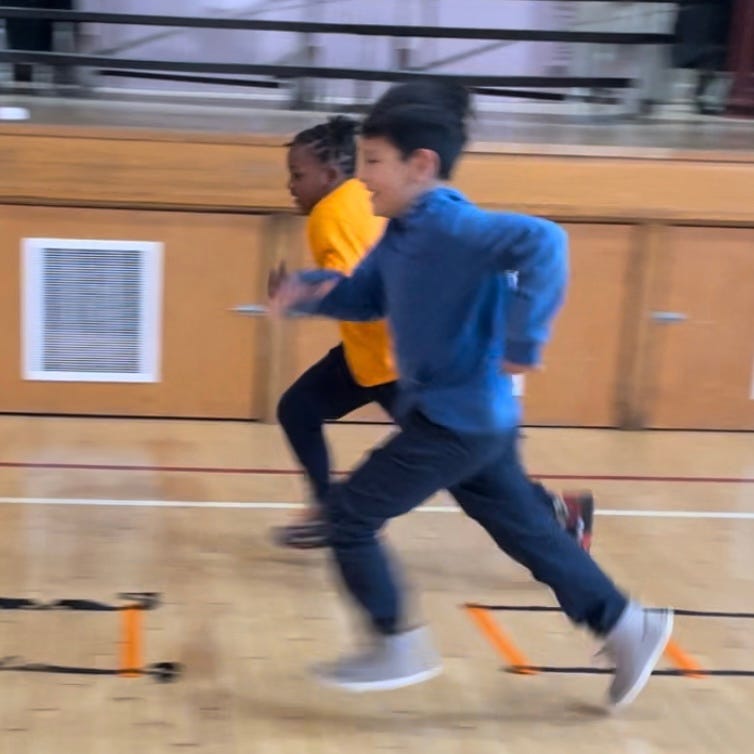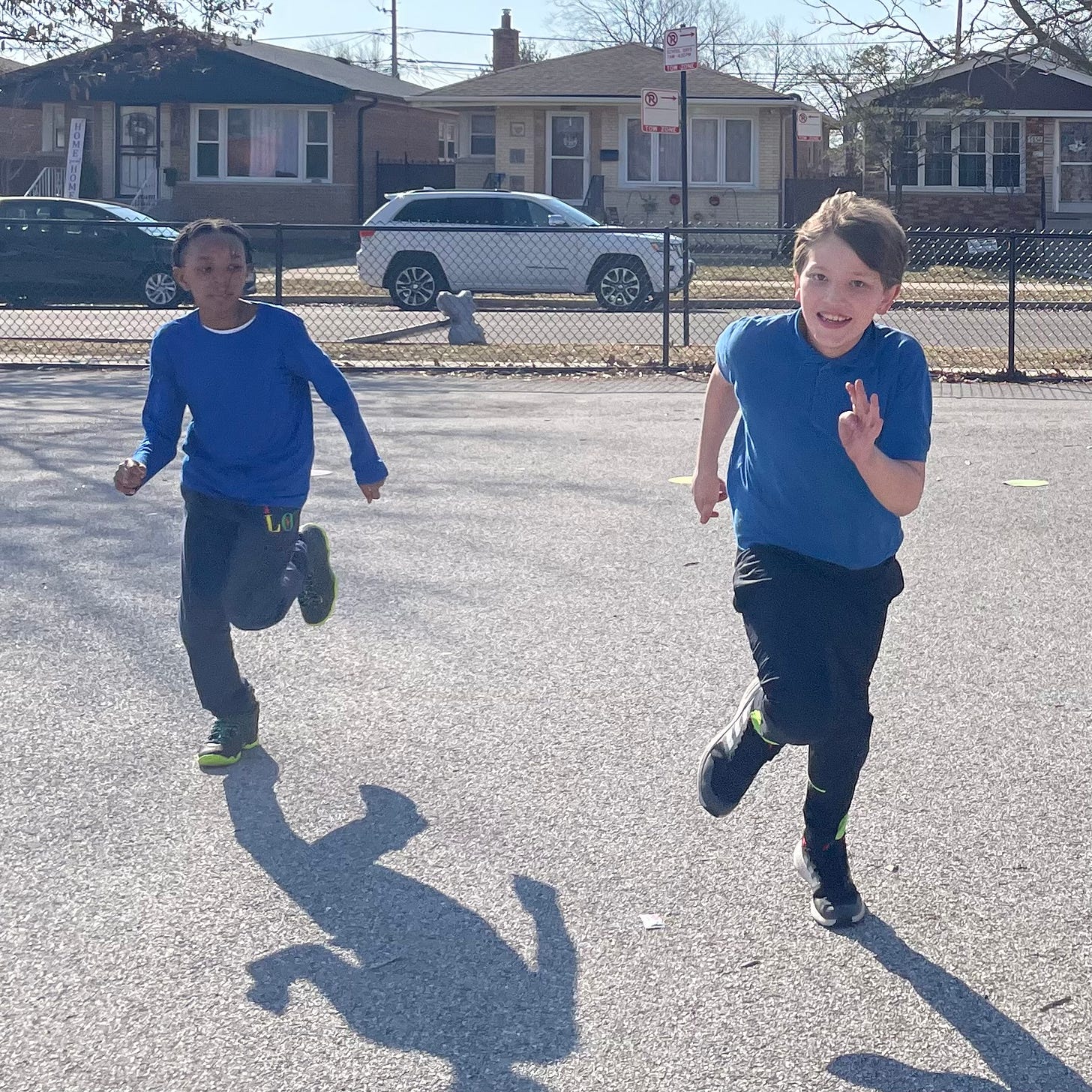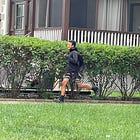How 'running like a cheetah' has boosted Chicago school kids' behaviour and confidence
Mary McNerney's Run Like A Cheetah not-for-profit has been running for seven weeks in one city school - but she has big ambitions
“The Cheetah program has given my student a confidence in the classroom that he did not have prior to the program.
“It offers him an intimate environment - a small group to allow his needs to be met. On the day he attends the Cheetah program, I notice a more positive perspective on learning.”
No, the above review isn’t taken from a safari park gamekeeper, but from a teacher.
They are writing about how the first seven weeks of a new running programme in Chicago is transforming the lives of children at their school.
Run Like A Cheetah, which runs as a non-profit charity, is the brainchild of former teacher Mary McNerney, a three times marathoner whose own love of running dates back to High School.
The programme, which aims to teach students how to manage their emotions, build relationships and show empathy for others, is currently operating in one Chicago school but Mary is hoping to expand across the city.
Run Like A Cheetah is a non-profit charity. If anyone would like support its mission to boost children’s mental and physical health, they can make a tax deductible donation by visiting www.runlikeacheetah.com
Run Like A Cheetah aims to work within the school day as a fun, non-competitive and all-inclusive way of boosting children’s mental, physical and emotional health.
The group’s ‘Cheetah Guides’ will teach running to small groups of children from kindergarten age up to eighth grade (aged 13-14 years old).
It is particularly aimed at children who have suffered past trauma or come from disadvantaged backgrounds, but could potentially benefit anyone in the school system.
Small classes with big impacts:
After a year of “soul searching” when she left the teaching profession, Mary realised she missed working with children - and that she could combine her love of running with that passion.
She told Running Tales: “One day I was out running, and I thought, ‘what if I worked with kids and I did some running with them?’
“There's running programmes out there already, but ours is different in that we are focusing on bringing it into schools during the school day.
“Our mission is to use running as a way to help these kids feel better.”
Want to help Running Tales keep bringing you stories like Mary’s? Please consider leaving us a tip on the Buy Me A Coffee website. Thanks.
Mary said Run Like A Cheetah has the power to not only improve children’s health, but to boost their concentration, memory and motivation leading to knock-on effects like better behaviour and increased attendance in class.
Her classes come in addition to regular gym lessons in schools, and currently focus tightly on five or six children for 40 minutes at a time.
“We don’t expecting teachers to do anything in our classes - all they have to do is give us the kids,” she said.
“I keep it as a small group because there's benefits in terms of making connections with the kids and being able to meet their needs.
“It is much better than having 30 kids in a group. Children will come out of their shell, even if they're quiet kids, when you have a small group.”
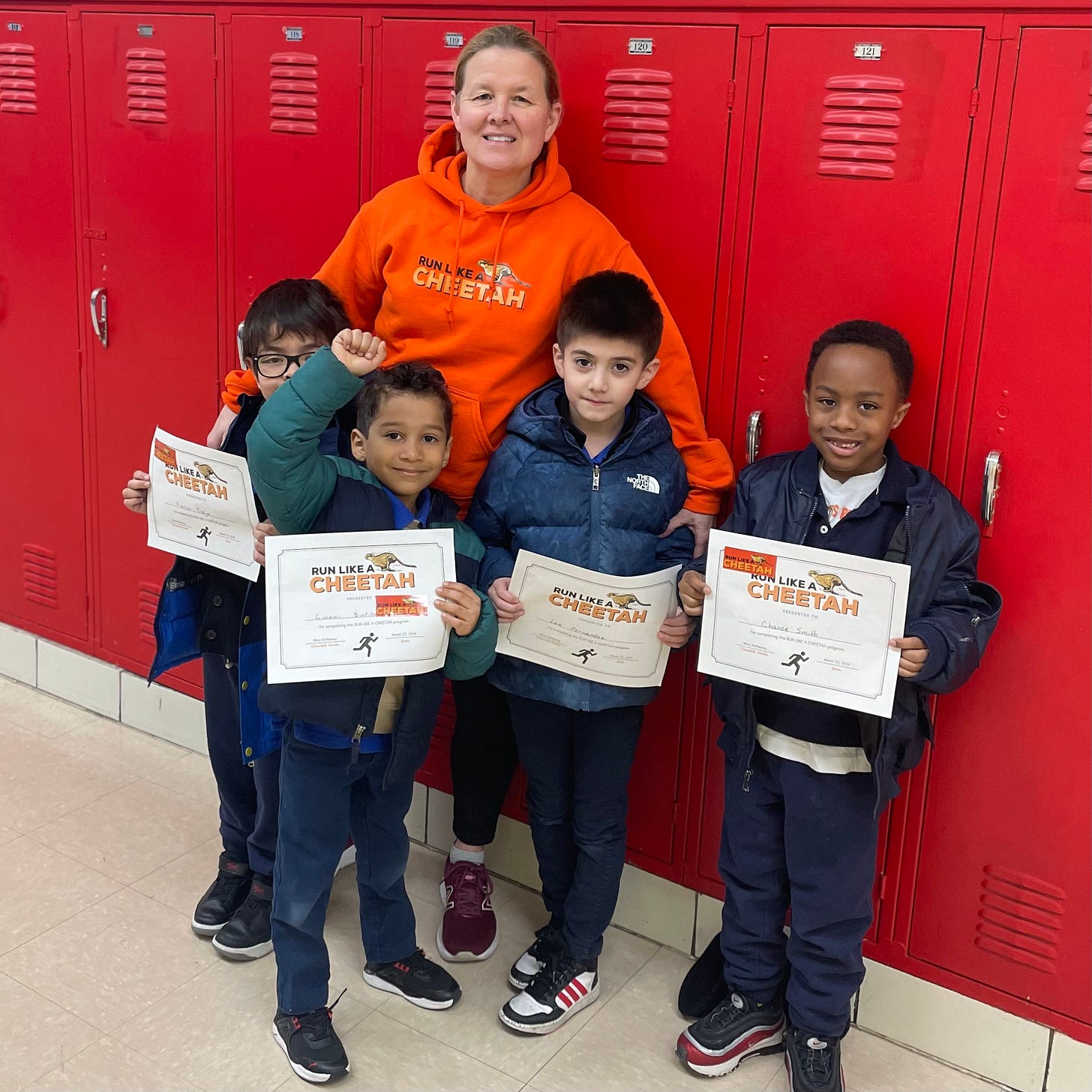
The classes start with a short mindfulness session to calm the children and help them focus on the day’s activities. The children then do a variety of stretches, before they start running.
Mary said: “One of the running activities that the kids love is like a relay race, but we play ‘Pass the Cheetah’ instead of using a baton.
“We have a little stuffed cheetah and they love working as a group, setting up the four cones they use, and then playing the game. We've been lucky with the Chicago weather, so it's been nice to use the park or playground - and they love it.”
She told Running Tales that during sessions the youngsters work together to achieve their goals, making new friends in the process.
‘He has something to look forward to at school’:
The impact of the first seven weeks of Run Like A Cheetah classes has already proved considerable.
Mary told Running Tales the feedback she has had from teachers has been “unbelievable,” adding she has personally seen the difference the sessions have made to students.
“The smiles on their faces when it's a Cheetah Day are incredible,” she said. “They are super excited. they love being a cheetah.
“They love telling me that they can run as fast as a cheetah. They're engaged in the lessons. They're laughing, running, and they tell me over and over again, ‘I want to be a cheetah’.”
What the teachers said:
One child was having concentration problems in class before attending Run Like A Cheetah. This is what his teacher said…
“The Cheetah program has given my student a confidence in the classroom that he did not have prior to the program. It offers him an intimate environment - a small group to allow his needs to be met.
“On the day he attends the Cheetah program, I notice a more positive perspective on learning. He's able to persevere through his challenges, and has a healthy relationship with his peers.
“He's very proud to be a cheetah. I wish more students could reap the benefit of the Cheetah program.”
Mary said another boy was a poor student and didn’t like coming to school, but his teacher said since he started attending Run Like A Cheetah classes, he has gained confidence from doing something he is good at - running - and now looks forward to going to school.
And the school’s Principal said one child who she would have to see every week because of behavioural issues hasn’t been sent to see her once since the programme started.
Mary said: “There are kids that dread going to school. They're not academic, but this is a sport where you just put your sneakers on and go.
“It’s been awesome to watch these kids enjoying themselves and to see how much they're benefiting from it.”
She said the programme benefits all sorts of different children, from those with behavioural issues or who have too much energy, to shy youngsters who need help with socialisation.
Exercise as a social prescription:
Mary said schools in Chicago have been working really hard to improve the lives of children, including by bringing in social workers or starting socio-emotional programmes.
She called such schemes “fantastic,” but added: “But how about we bring in more exercise for these kids?
“We can work on social and emotional issues while running. If a child's having problems making friends, put them in a cheetah group. We can all work together or do something fun like a relay race.
“As a teacher, you may have a child that's fighting - say, Johnny and Billy are fighting. They just don't get along. So, you send them to the social worker.
“The social worker will sit them down, ask them to say how they are feeling. Fantastic - but how about we take those two same kids, put them together in a Cheetah Group and do some running together.
“Let's form that friendship through running, which is going to make them feel good.”
Could running boost academic achievement?:
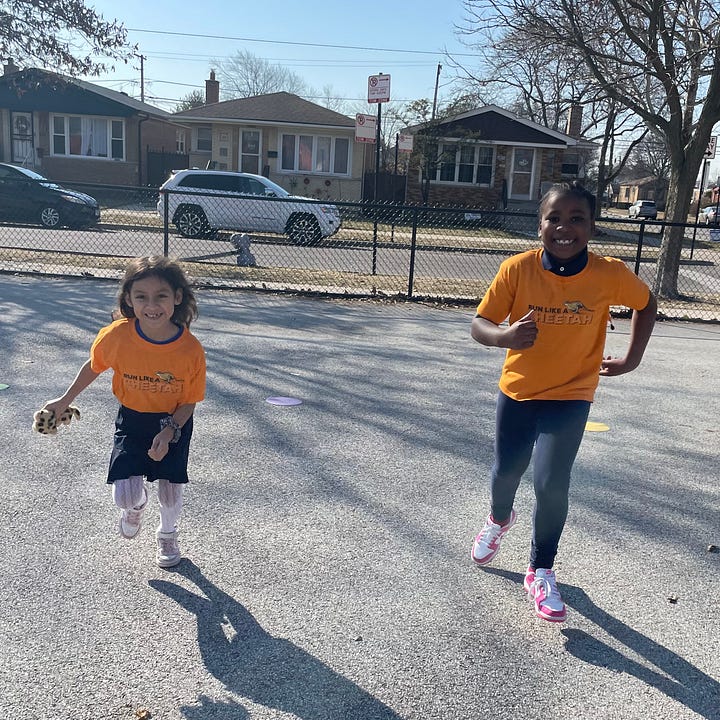
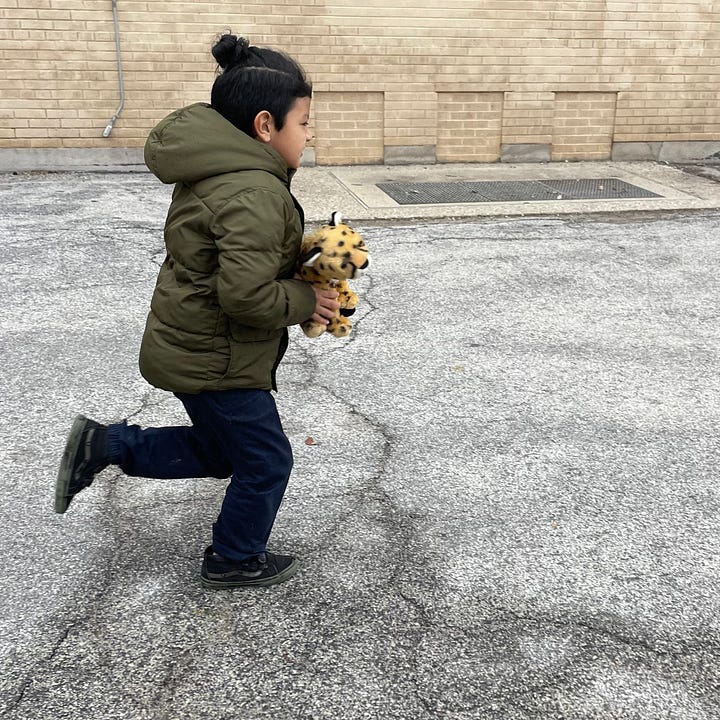
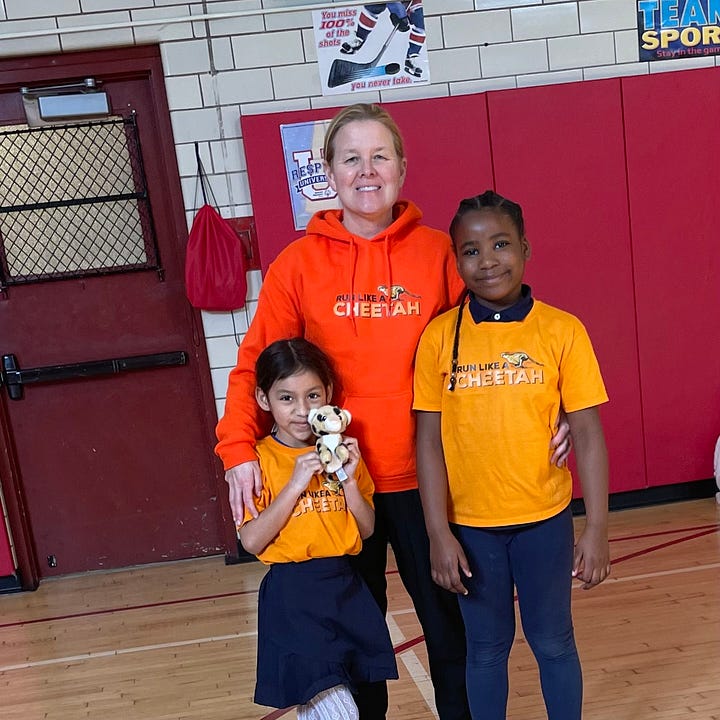
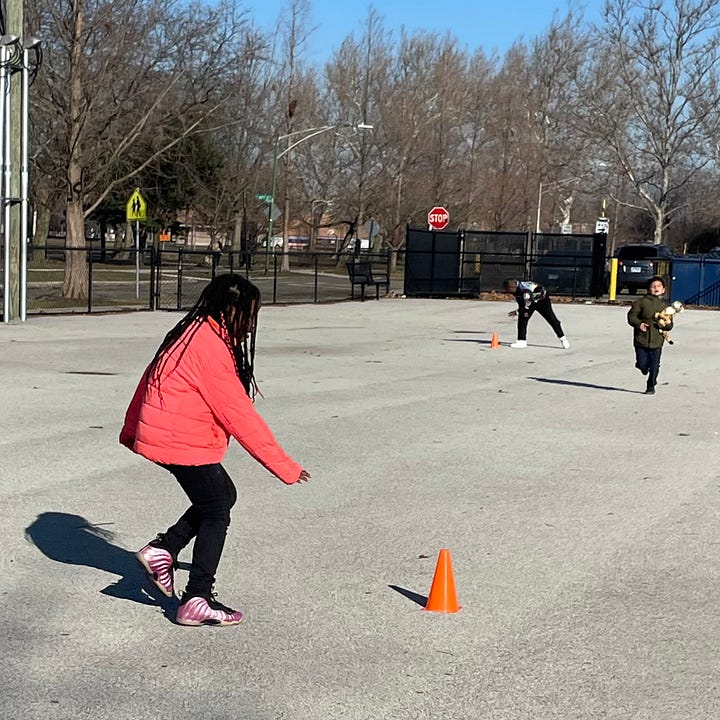
Another benefit of the scheme is that by improving the behaviour of children who have been disrupting classes, other students are able to concentrate and learn better as lessons are not being constantly interrupted.
Mary said this will also have an impact on teachers: “We are helping those kids in their classroom feel better, which has an effect on the other students in the classroom.
“That teacher can then focus on the reading, the math, the academic part. And then, it's going to have an effect on the parents as the kids are going to go home and talk about how they had a good day - ‘I'm fast. I'm a cheetah’.
“It has such a ripple effect.”
Although it is too early to see any difference, Mary is also hopeful the programme will lead to a long-term improvement in participant’s academic performance.
“Two classes a week over just seven weeks probably isn’t enough to tell if we will see an improvement in grades,” she said.
“But some of the kids will continue until the end of the year and beyond, so we are planning down the line to look and see if this has affected their grades.
“We’ve seen improvement already in their behaviour. We see it in their interaction with others in the classroom, and in social and emotional components.
“We're seeing a positive impact in attendance, with the kids wanting to come to school.”
The stuffed cheetah - a game changer:
Mary’s next aim is to get into more schools. She is spending her spare time speaking to school principals and network chiefs to raise awareness of the scheme.
She has also started three Summer Programmes in the Chicago area, and has plans to begin an after-school programme in the future.
If it sounds like a lot of work, the rewards are clear - and in no more certain a way than through being able to combine her twin loves of teaching and running.
She told Running Tales that the children make her laugh every day through the things they say or do.
“Last week it was 35°F so I took the children outside,” she said. “One of the kids kept telling me - and it was so silly - that he was going to have a heart attack if we go out.
“I said, ‘no, honey, no, you won't have a heart attack. This is good for you. Let's go outside. Let's get running.’
“And he was fine, of course.
“We also have the little stuffed cheetah we use, and they want to take it home with them - but I need it for my next group!
“Every day there's a new story. I can't even think of any others right now, but the children are just so innocent. They just want to have fun and they want that connection.
“My goal is to get the word out and make people understand, as a runner understands, what the value of running is. That this could be a game changer.”
If you enjoy this article, check out some of the inspirational running stories on this newsletter and subscribe to make sure you never miss another article.
From marathons to best selling books - how running changed Hannah Phillips' life
Running Tales: After all is said and run is a reader-supported publication. To receive new posts and support my work, consider becoming a free or paid subscriber.
Super Mario - The Ironman who always finishes with a smile on his face
Running Tales: After all is said and run is a reader-supported publication. To receive new posts and support my work, consider becoming a free or paid subscriber.
Guest blog: Let’s talk about female runners…
This post was written by Sarah Longstaff and originally posted on her Sarah’s Running Journey blog.



